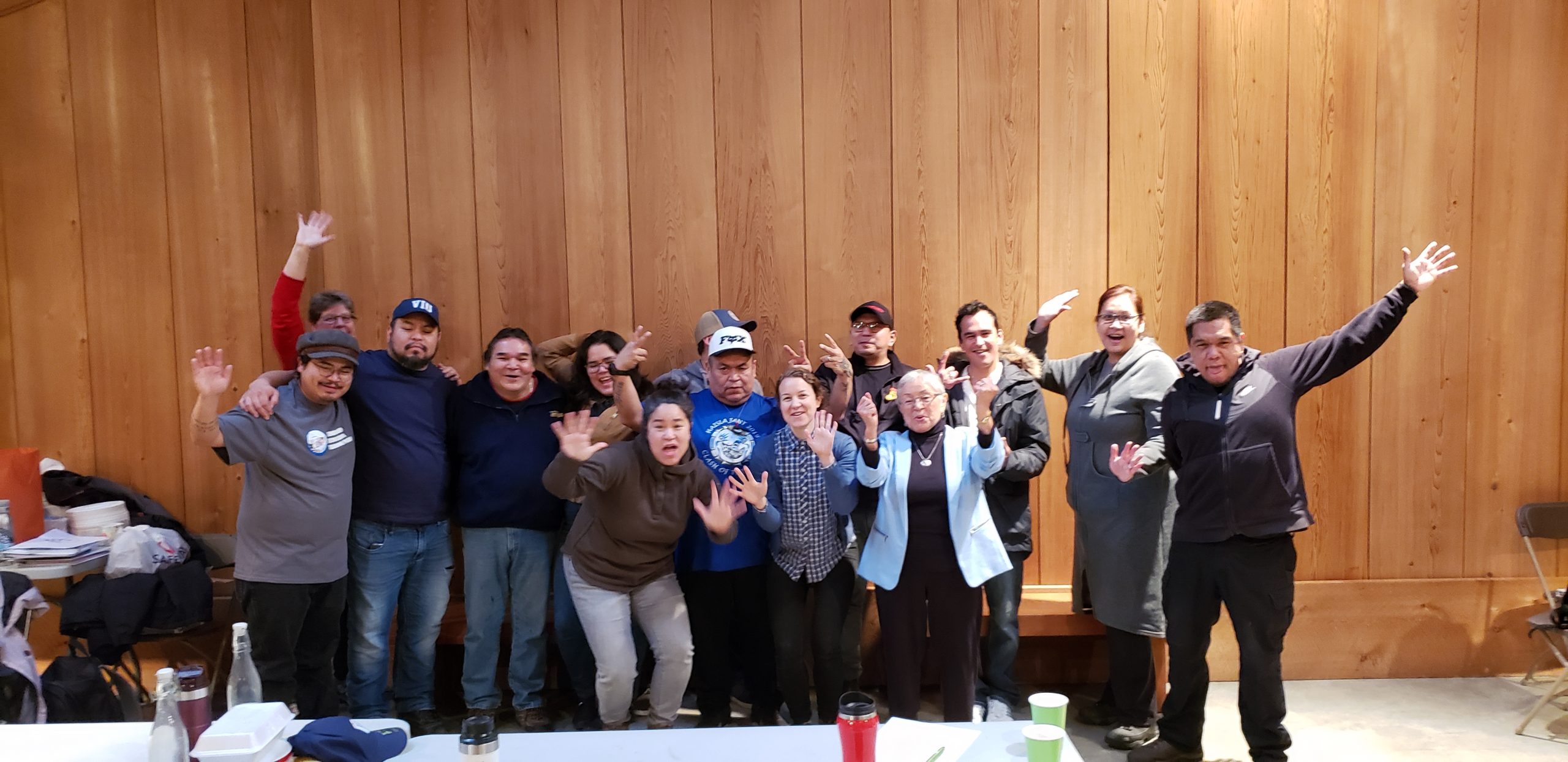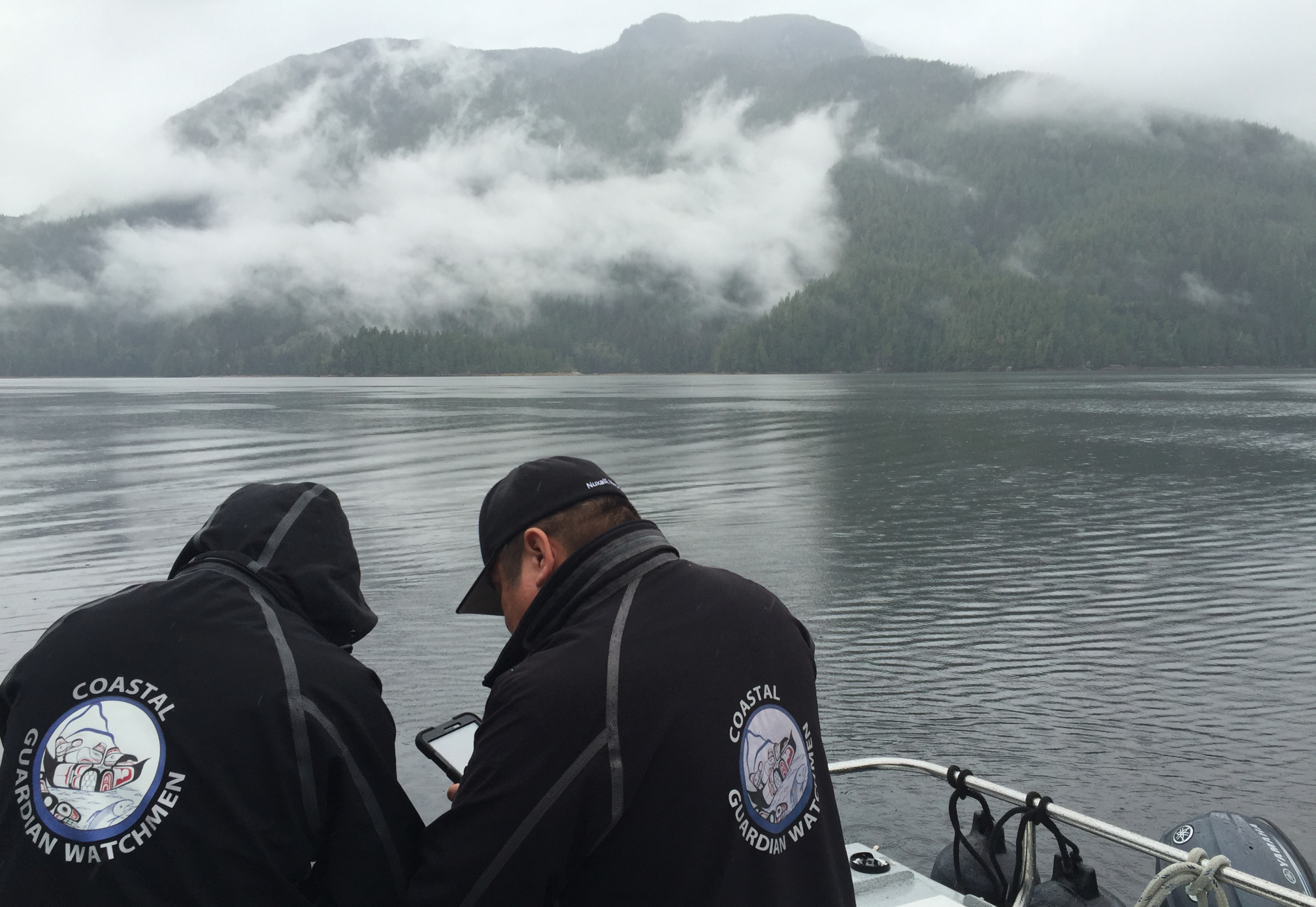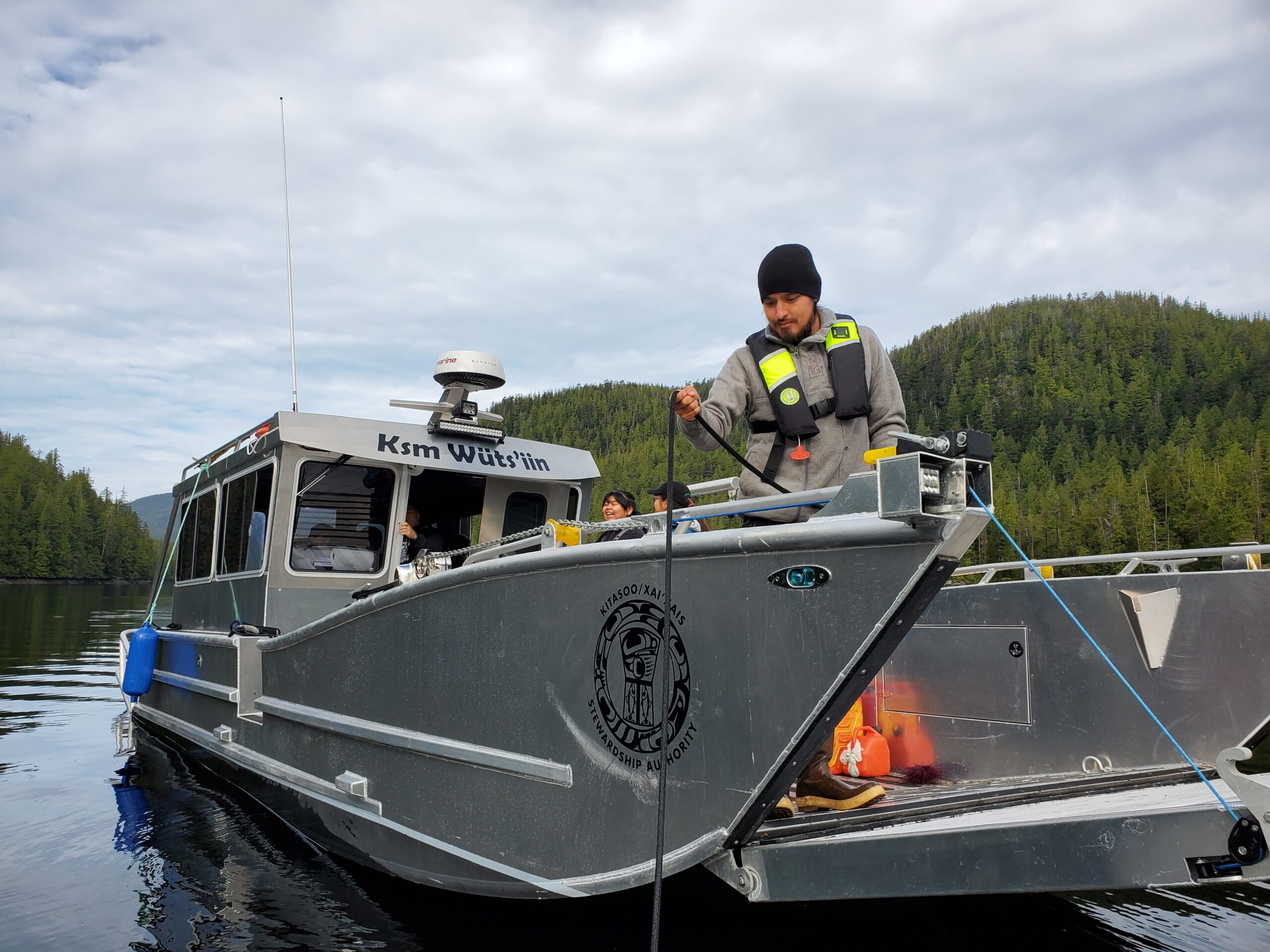In early December, 12 students from six First Nations along the North and Central coast completed a unique and enlightening training course that explored the many connections between Reconciliation and Climate Change.
Facilitated by CFN-GBI’s Coastal Stewardship Network (CSN) in partnership with Vancouver Island University, the four-day professional development course (“Stewardship in a Changing World: Reconciliation, Climate Change and Coastal Guardian Watchmen”) was taught by Hilistis Pauline Waterfall, a respected Heiltsuk Elder and educator with more than 35 years’ experience.
The students who participated were all graduates of the Stewardship Technicians Training Program, which meant they’d already successfully completed 14 courses in applied resource stewardship, gaining university credits and industry recognized certificates along the way. It also meant they had refined and broadened their overall stewardship knowledge, which many had further honed over several years working in the field for their Nations as Guardians.
“The students brought a high degree of knowledge and lived experience to the course. They also brought a great deal of heart,” says CSN training coordinator Dana Holtby, who helped organize the program and attended each session. “These students are like family to one another. The connections they share and the way they uplift one another greatly strengthens their ability to do this important work.”
The students were led through a whole range of activities—including a visit to Prince Rupert’s innovative and Indigenous-owned Coastal Shellfish Corporation; a session on Clam Garden revitalization led by members of the Metlakatla and Gitga’at Nations; a climate change discussion with CFN-GBI Climate Action Coordinator Braden Etzerza; a workshop with esteemed Chilkat weaver William White; plus, a primer on the UN Declaration on the Rights of Indigenous Peoples (UNDRIP).
Guardians and other stewards along the coast see the impacts of climate change on a daily basis and are deeply concerned by the shifts they are witnessing. This course showed these students how their work is not only making a tangible contribution to tackling the climate crisis, but is also an important part of the resurgence of their cultural traditions, Indigenous laws, and carrying forward the stewardship efforts of their ancestors.


